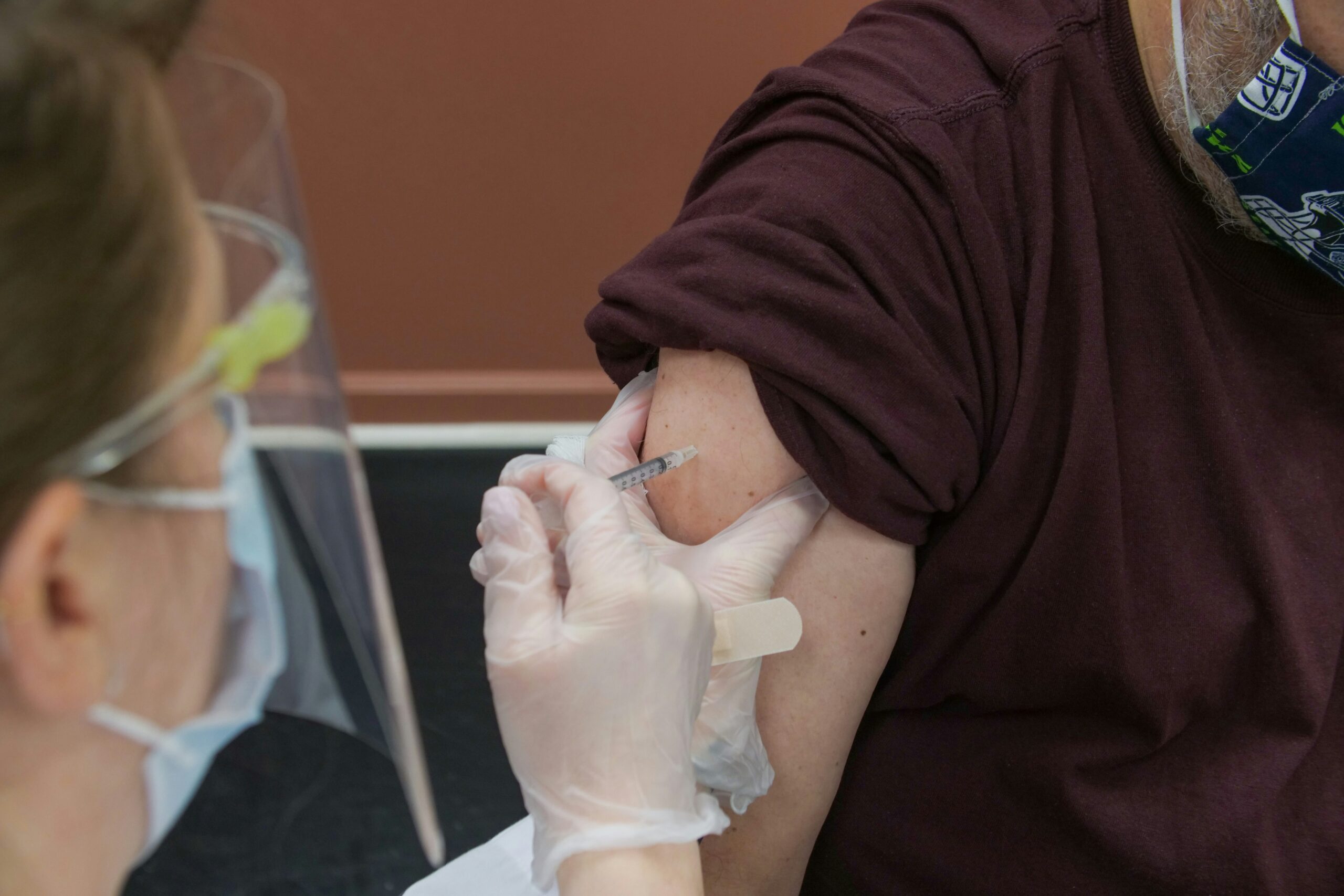The first 72 hours after quitting drinking are often the most difficult. When people are trying to break free from an alcohol use disorder, they often experience intense physical and mental withdrawal symptoms that can have serious medical consequences if left unaddressed. Some people relapse within the first three days as a result of withdrawal.
But why are the first 72 hours so critical?
How Alcohol Affects the Brain and Body
The first step to understanding what happens after 72 hours of no alcohol is recognizing how alcohol use affects your brain and body. Despite its legal status, alcohol is a drug. It belongs to a class of drugs known as central nervous system depressants, which means it slows down your body’s automatic functions.
When people drink alcohol, they may experience effects such as:
- Relaxation
- Tiredness
- Slowed breathing
- Lowered inhibitions
- Reduced anxiety
Alcohol produces these effects by changing the way neurotransmitters work within the brain. Specifically, alcohol enhances the effect of a neurotransmitter called GABA, which is responsible for calming the brain and central nervous system.
But when people drink regularly and develop an alcohol use disorder, their brains become reliant on this enhanced GABA response. Essentially, the brain adjusts to become more active and excitable to counteract the depressant effects of alcohol, attempting to reach a state of homeostasis.
Alcohol has a long list of effects on the body, as well. Among others, alcohol can affect the function and health of organs such as the:
- Stomach
- Liver
- Kidneys
- Blood vessels
- Heart
- Skin
- Esophagus
- Pancreas
The harmful effects of alcohol become additive over time and can lead to several different types of cancer or other diseases.
What Happens After 72 Hours of Sobriety?
When people attempt to quit alcohol cold turkey, they can experience a number of physical and mental withdrawal effects. As such, this is not suggested. Within the first 48 hours, most people experience a rapid increase in physical withdrawal symptoms.
Between hours 48 and 72, symptoms tend to peak in intensity, making the third day of sobriety often the most difficult.
After people reach the 72-hour mark, they can still feel intensely uncomfortable symptoms but begin to show gradual improvement as time goes on.
Left untreated, alcohol withdrawal can not only be intensely uncomfortable, but in some cases, it can also be life-threatening. For example, the elevated central nervous system activity associated with severe alcohol withdrawal can lead to fatal seizures. Thankfully, there are several evidence-based treatment options for alcohol withdrawal that can make the process safer, more comfortable, and much easier to overcome.
Reaching out to a medical detox facility is often the best choice, as these facilities are dedicated to helping people break free from alcohol withdrawal. If this isn’t an option, an emergency room or hospital can provide life-saving treatment and help you detox safely.
Alcohol Withdrawal Symptoms
Alcohol withdrawal is the set of symptoms caused by cutting alcohol out. The symptoms people experience are typically the result of an overactive central nervous system caused by the brain’s adjustment to the effects of alcohol over time.
Alcohol withdrawal typically starts within 24 hours, with symptoms growing in intensity over the first three days. After hour 72, most symptoms start to improve, but the physical symptoms of alcohol withdrawal can last for as long as two weeks. However, post-acute withdrawal syndrome (PAWS) can linger for months.
Common alcohol withdrawal symptoms include:
- Shakes
- Nausea
- Sweating
- Vomiting
- Headache
- Auditory disturbances
- Visual disturbances
- Anxiety
- Cravings
Severe alcohol withdrawal can lead to a condition called delirium tremens (DT). Delirium tremens often begins with regular alcohol withdrawal symptoms but advances to people experiencing profound confusion, auditory and visual hallucinations, agitation or aggression, and seizures.
When it is left untreated, delirium tremens is fatal in roughly 15% of cases. Seeking medical treatment reduces the fatality rate to just 1%.
Differences Between Light, Moderate, and Heavy Drinkers
Even with the symptoms outlined above, there are substantial differences between mild, moderate, and severe drinkers within the first 72 hours.
Light or moderate drinkers may feel few symptoms at all. They might only feel slightly on edge during the first few days of abstaining from alcohol.
Heavy drinkers tend to experience some degree of nausea, shakes, anxiety, and headache when they stop drinking.
Chronic heavy drinkers are at the highest risk of developing delirium tremens and seizures. Furthermore, people who have engaged in heavy drinking for extended periods are also at risk of developing Wernicke-Korsakoff syndrome, a neurological disorder that’s caused by thiamine (vitamin B1) deficiency and can lead to memory loss, confusion, and brain damage. This condition is often missed or misdiagnosed because its symptoms are similar to those of other conditions.
Are You Cured of Alcohol Symptoms After 72 Hours?
While the first 72 hours are undoubtedly the most intensive in alcohol recovery, withdrawal symptoms don’t simply disappear once you pass this mark. Many people continue feeling the effects of physical withdrawal for up to two weeks, and the mental health effects of alcohol withdrawal can last even longer.
The good news is that for most people, the 72-hour mark is when physical symptoms begin to improve rapidly. Withdrawals are still difficult, but they become easier to manage when they begin to reduce in intensity.
Unfortunately, mental health symptoms can be pervasive. People recovering from an alcohol use disorder regularly experience symptoms that include:
- Anxiety
- Craving
- Depression
- Boredom
- Fatigue
- Lack of motivation
These symptoms will get better in time, but the exact duration depends on a variety of factors. When mental health symptoms continue to interfere with your life for an extended period, it’s often referred to as post-acute withdrawal syndrome (PAWS) and is typically treated through a combination of therapy, medication management, and other mental health interventions.
How an Alcohol Treatment Center Can Help
Alcohol treatment can dramatically reduce the severity and discomfort of alcohol withdrawal symptoms. By using a technique known as withdrawal management, the vast majority of withdrawal symptoms can be reduced or eliminated through targeted medication and treatment interventions.
Medications used in the treatment of alcohol withdrawal are designed to calm the central nervous system, allowing people to achieve recovery in safety and relative comfort. While breaking free from an alcohol addiction is never easy, withdrawal management can help make your goal of recovery achievable.
Withdrawal management can be provided at hospitals or general addiction treatment centers, but it’s often treated at facility that is well versed in handling alcohol withdrawal symptoms like Lakeview Health. At these treatment centers, a multidisciplinary team of medical and mental health professionals work together to manage symptoms of withdrawal, prevent life-threatening symptoms, and offer treatment and support during this difficult period.
While detox is a critical first step, it typically isn’t enough to produce lasting recovery. Detox should always be followed by admission to a substance use treatment center where you can receive targeted therapies and treatments to help you sustain your new recovery for years to come.
The treatment of alcohol use disorders has been studied for decades and shows remarkable effectiveness in helping people break free from addiction, resist alcohol cravings, and build happier and healthier lives in recovery.
If you or a loved one are experiencing alcohol withdrawal symptoms, it’s vital that you seek out treatment options. Interventions by medical professionals can prevent significant consequences.
To get started with alcohol detox and treatment, reach out to Lakeview Health by filling out our online contact form or calling 866 704 7692 for more information.




